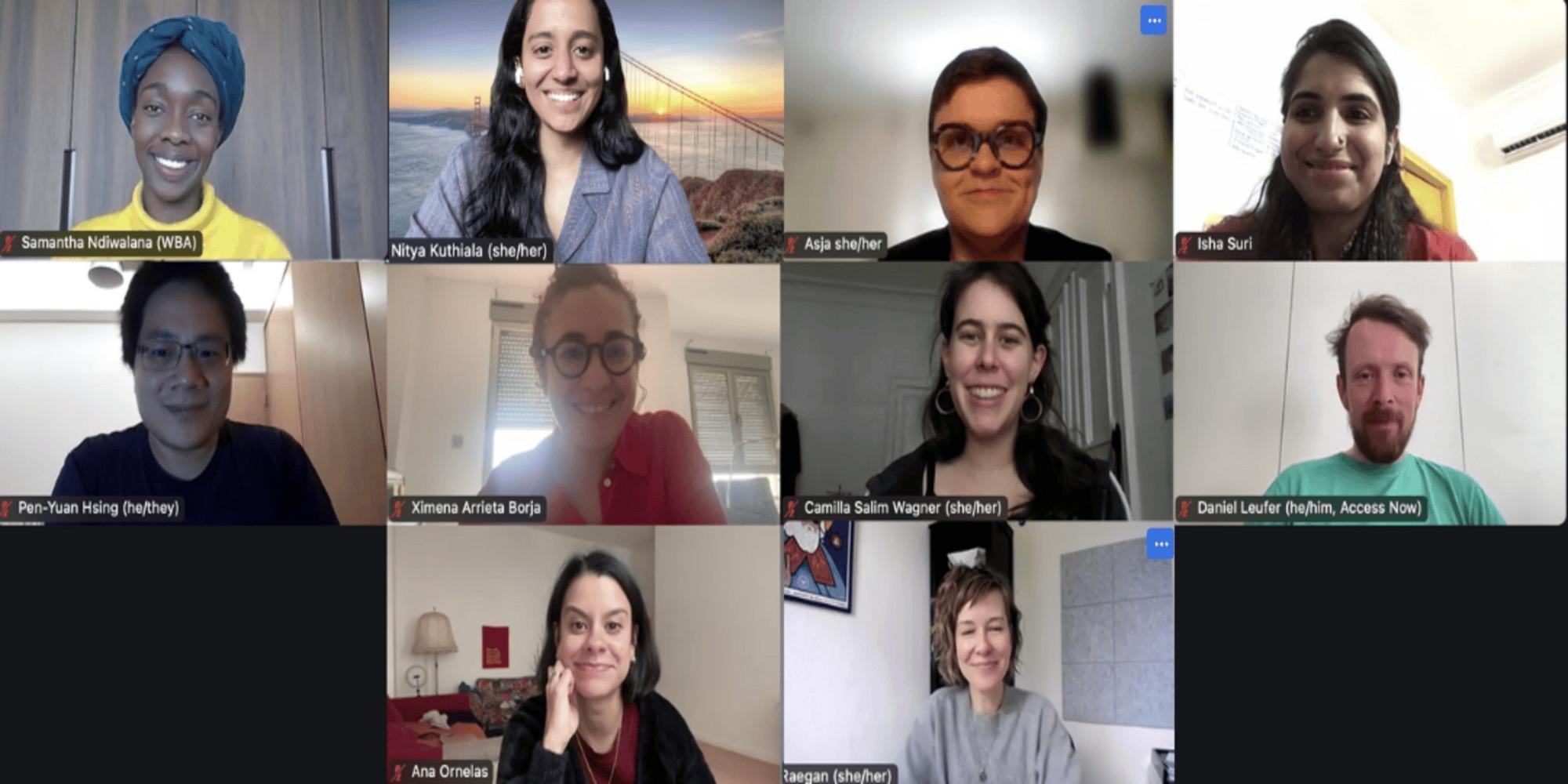“AI” has rapidly moved to the top of political and economic agendas across the globe. Governments are positioning AI as a cornerstone of national competitiveness, shaping industrial policy, public investment strategies, and regulatory frameworks.
In this context, how can we centre openness, equity and justice in AI-related policy strategy?
To truly represent the voices of the public, “openness” is often seen as a way to support these efforts. However, it is crucial to first ask “open for whom” (who benefits?) and “open for what purpose” (what goals does openness serve?). Such fundamental questions are what our first ever AI Openness & Equity Policy Leadership Cohort, launched in partnership with Mozilla, is all about.
This Cohort brings together a diverse mix of practitioners, researchers, and academics to explore what openness and equity can and should mean in AI, and how they can be levers for greater accountability, inclusion, and public interest development across Europe and beyond. Join us in welcoming our participants:
Ana Ornelas: Ana is a feminist erotic writer, pleasure activist, and educador specialising in themes of sexual health, sex education, erotic literature and cliteracy. She is also an advocate for the adult industry and works as the Advocacy Officer for the Digital Intimacy Coalition. Ana comes from Brazil and is based in Berlin, Germany. You can follow her on Instagram here.
Daniel Leufer: Daniel works at the intersection of politics, philosophy, and technology. At the moment, he is particularly interested in the array of technologies, systems and ideas that fall under the term ‘artificial intelligence’. He was a Mozilla Fellow in 2020, when he created the website aimyths.org to tackle misconceptions about AI. He is now Emerging Technologies Policy Lead at Access Now. He is based in Brussels, Belgium. You can follow him on X here.
Camilla Salim Wagner: Camilla is passionate about the world of data production for AI systems and collaborates with whistleblowers and organised workers advocating for better conditions and worker-centric AI regulation. She is part of the organising team of the Data Workers' Inquiry at the Weizenbaum Institut. She is based in Berlin, Germany.
Isha Suri: Isha is an Electrical Engineer with a postgraduate degree in Law, with a specialisation in Intellectual Property Law. She is also an AI and Market Power Fellow (2025) at the European AI Society Fund. Until recently she worked as a Research Lead at the Centre for Internet and Society - India, where she managed the organisation's work on digital infrastructure, internet governance, antitrust, telecommunications, and critical technologies. She is based in Delhi, India.
Pen-Yuan Hsing: Pen is a postdoctoral researcher at the University of Bristol and a Board Member of the Open Science Hardware Foundation, studying structural issues in academic research and advocating for the use of emancipatory, open source technologies. Previously, during his PhD, he co-founded MammalWeb, a citizen science network working with local communities in biodiversity monitoring. He is currently based in the United Kingdom. You can read more about this work here and find him on his socials here. You can read more about this work here and find him on his socials here.
Samantha Ndiwalana: Samantha is a Researcher with a background in international affairs and sustainability. She previously managed the world's first Digital Inclusion Benchmark, conducted randomised control trials with J-Pal in South Africa as a Senior Research associate, and showcased the work of youth entrepreneurs in Southern and East Africa with the Building Bridges Foundation. She shuttles between South Africa and the Netherlands.
Ximena Arrieta: Ximena is a Mexican feminist and digital activist. She co-founded Accionar.io, a civic tech lab supporting grassroots movements and activists through campaign design, strategic communication, and open-source tools and is a Program Officer at HURIDOS (Human Rights Information and Documentation Systems). She is based in Spain.
Over the course of seven weeks, through open discussions and interactions with leading experts, we will think through some of AI policies tough questions:
-
How can we understand AI openness beyond technical specifications?
-
How are openness and security mutually reinforcing?
-
How can openness be used as a tool to advance climate justice and accountability?
-
What are the key AI policy decisions currently shaping up in the EU landscape and how can we meaningfully contribute to them?
-
What could a public interest approach to “EU digital sovereignty” look like?
In the spirit of remaining open as we go through this AI Openness and Equity Cohort, we will be sharing our learnings and reflections along the way. More to come soon.
We also want to sincerely thank everyone who took the time and effort to express their interest in joining this Policy Leadership Cohort. We were heartened to see such strong interest in being part of these important conversations. We are actively working toward offering more programming like this in the future — stay tuned!
This post was co-written by Nitya Kuthiala


